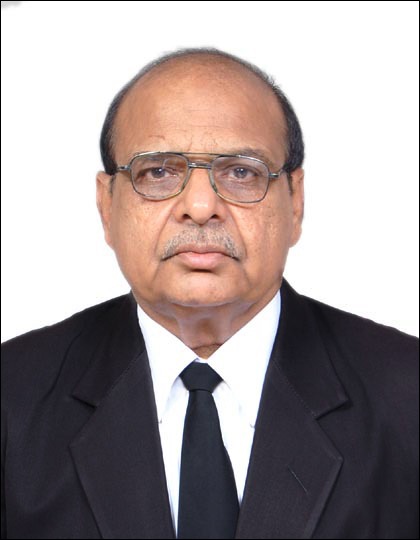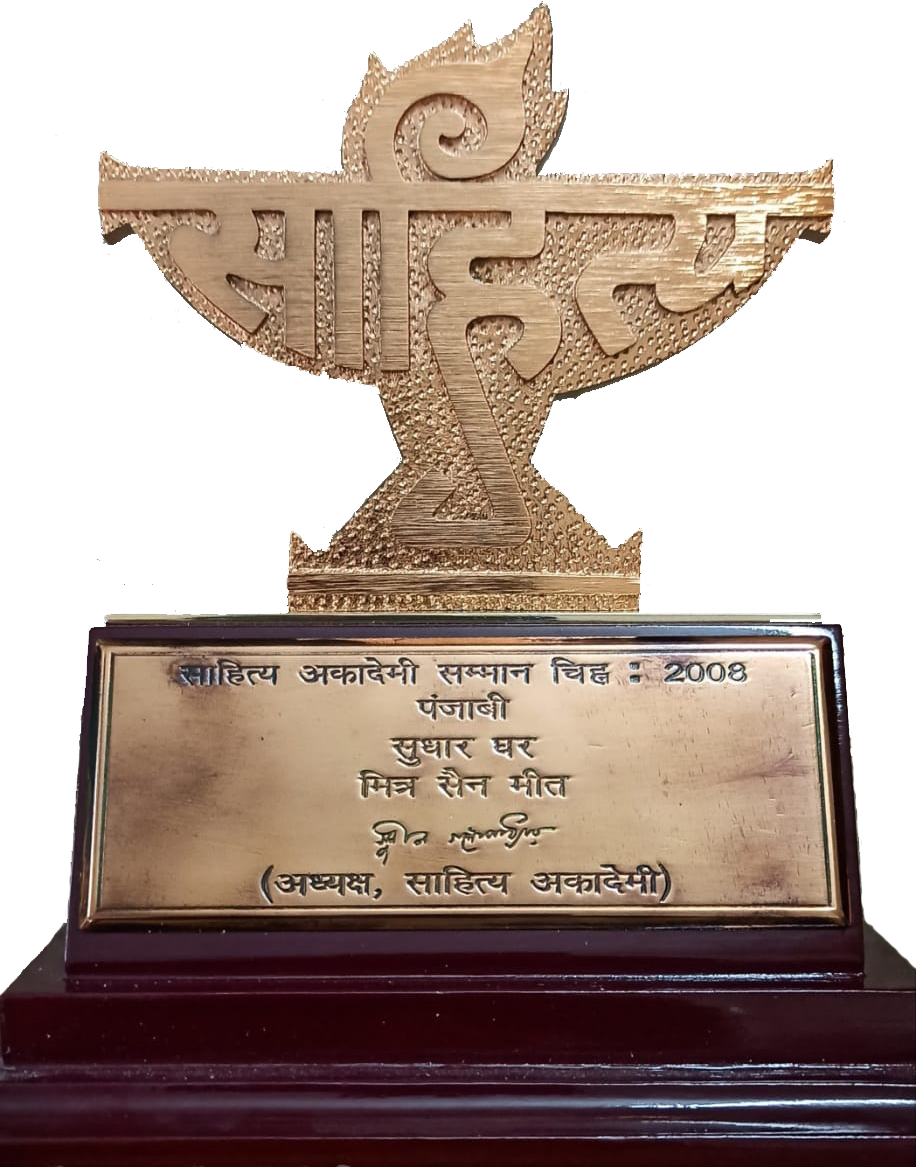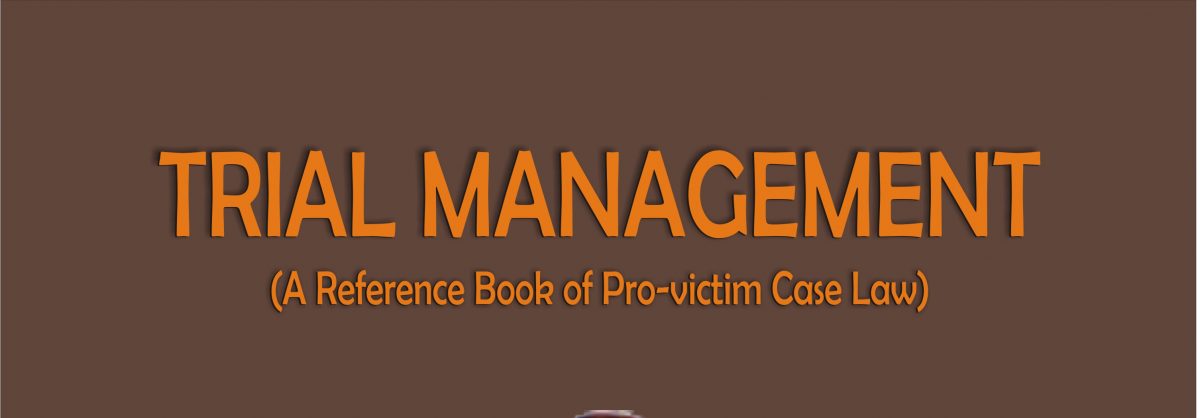ਮੁਕੱਦਮਿਆਂ ਦੀ ਸੁਣਵਾਈ(Trial of cases)
(Sections 26, 218, 220, 228, 319 of Cr.P.C.)
ਇੱਕ ਵਾਰਦਾਤ ਵਿੱਚ ਦੋਸ਼ੀ ਵੱਲੋਂ ਇੱਕ ਤੋਂ ਵੱਧ ਜ਼ੁਰਮ ਕੀਤੇ ਜਾ ਸਕਦੇ ਹਨ। ਦੋਸ਼ੀ ਵੱਲੋਂ ਵੱਖ-ਵੱਖ ਥਾਵਾਂ ਉੱਪਰ ਵੱਖ-ਵੱਖ ਜ਼ੁਰਮ ਵੀ ਕੀਤੇ ਜਾ ਸਕਦੇ ਹਨ। ਇੱਕੋ ਕੜੀ ਵਿੱਚ ਕੀਤੇ ਵੱਖ-ਵੱਖ ਜ਼ੁਰਮਾਂ ਦੀ ਸੁਣਵਾਈ ਇੱਕੋ ਅਦਾਲਤ ਵੱਲੋਂ ਕੀਤੀ ਜਾ ਸਕਦੀ ਹੈ। ਇੱਕ ਵਾਰਦਾਤ ਵਿੱਚ ਦੋਵੇਂ ਧਿਰਾਂ ਇੱਕ ਦੂਜੇ ਵਿਰੁੱਧ ਜ਼ੁਰਮ ਕਰ ਸਕਦੀਆਂ ਹਨ। ਜਦੋਂ ਦੋਵੇਂ ਧਿਰਾਂ ਮੁਲਜ਼ਮ ਹੋਣ ਤਾਂ ਮੁਕੱਦਮਿਆਂ ਨੂੰ ‘ਜੁੜਵੇਂ ਮੁਕੱਦਮੇ’ ਆਖਿਆ ਜਾਂਦਾ ਹੈ। ਜੇ ਦੋਹਾਂ ਮੁਕੱਦਮਿਆਂ ਦੀ ਸੁਣਵਾਈ ਕਰਨ ਦਾ ਅਧਿਕਾਰ ਇੱਕ ਅਦਾਲਤ ਕੋਲ ਹੋਵੇ ਤਾਂ ਦੋਹਾਂ ਮੁਕੱਦਮਿਆਂ ਦੀ ਇਕੱਠੀ ਸੁਣਵਾਈ ਉਹ ਅਦਾਲਤ ਕਰ ਸਕਦੀ ਹੈ। ਪਰ ਜੇ ਉਹਨਾਂ ਵਿੱਚੋਂ ਇੱਕ ਮੁਕੱਦਮੇ ਦੀ ਸੁਣਵਾਈ ਕੇਵਲ ਸੈਸ਼ਨ ਕੋਰਟ ਕਰ ਸਕਦੀ ਹੋਵੇ ਅਤੇ ਦੂਸਰੇ ਦੀ ਮੈਜਿਸਟ੍ਰੇਟ ਤਾਂ ਦੋਹਾਂ ਮੁਕੱਦਮਿਆਂ ਦੀ ਸੁਣਵਾਈ ਸੈਸ਼ਨ ਕੋਰਟ ਵੱਲੋਂ ਕੀਤੀ ਜਾਣੀ ਜ਼ਰੂਰੀ ਹੈ।
- ਮੁਲਜ਼ਮ ਤੇ ਲੱਗੇ ਸਾਰੇ ਦੋਸ਼ਾਂ ਦੀ ਇਕੱਠੀ ਸੁਣਵਾਈ (joint trial) ਤਾਂ ਹੀ ਅਨੁਮਤੀਯੋਗ (permissible) ਹੈ ਜੇ ਸਾਰੇ ਮੁਕੱਦਮਿਆਂ ਦੀ ਸੁਣਵਾਈ ਇੱਕ ਹੀ ਮੈਜਿਸਟ੍ਰੇਟ ਵੱਲੋਂ ਕੀਤੀ ਜਾ ਰਹੀ ਹੋਵੇ।
Case: State of Punjab v/s Rajesh Syal – 2003 Crl.L.J.60 (SC – FB)
Para “6. ….. In our opinion, proviso to S. 218 would apply only in such a case where the distinct offences for which the accused is charged are being tried before the same Magistrate. In the instant case, offences were being tried before different Magistrates and proviso to S. 218 cannot give any single Magistrate the power to order transfer of cases to him from different Magistrates of Courts. “
- ਧਾਰਾ 220 ਸੀ.ਆਰ.ਪੀ.ਸੀ. ਦਾ ਪ੍ਰਾਵਧਾਨ ਮੈਜਿਸਟ੍ਰੇਟ ਨੂੰ ਕਈ ਮੁਕੱਦਮਿਆਂ ਦੀ ਇਕੱਠੀ ਸੁਣਵਾਈ ਕਰਨ ਦਾ ਕੇਵਲ ਅਧਿਕਾਰ ਦਿੰਦਾ ਹੈ। ਅਦਾਲਤ ਸਾਰੇ ਜ਼ੁਰਮਾਂ ਦੀ ਇਕੱਠੀ ਸੁਣਵਾਈ ਕਰ ਸਕਦੀ ਹੈ ਅਤੇ ਨਹੀਂ ਵੀ।
Case : Mohinder Singh v/s State of Punjab, 1999 Cri.L.J.263 (SC)
Para “3. What is overlooked by the learned counsel is that it is an enabling provision which permits the Court to try more than one offence in one trial. The Court may or may not try all the offences together in one trial…”
- ਵੱਖ-ਵੱਖ ਥਾਵਾਂ ਤੇ ਕੀਤੇ ਵੱਖ-ਵੱਖ ਜ਼ੁਰਮਾਂ ਨੂੰ ਇਕੋ ਕੜੀ (same transaction) ਵਿੱਚ ਕੀਤੇ ਜ਼ੁਰਮ ਨਹੀਂ ਮੰਨਿਆ ਜਾ ਸਕਦਾ।
Case : State of Punjab v/s Rajesh Syal, 2003 Cri.L.J. 60 (SC – FB)
Para “7. In the present case, different people have alleged to have been defrauded by the respondent and the Company and, therefore, each offence is a distinct one and cannot be regarded as constituting a single series of facts/transaction.”
- ਜੇ ਮੁੱਖ ਜ਼ੁਰਮ ਨਵੇਕਲਾ ਅਤੇ ਭਿੰਨ ਹੋਵੇ, ਅਤੇ ਉਸ ਜ਼ੁਰਮ ਨੂੰ ਸਿਰੇ ਚਾੜਨ ਲਈ ਰਚੀ ਗਈ ਸਾਜਿਸ਼ ਮੁੱਖ ਜ਼ੁਰਮ ਦਾ ਇੱਕ ਮਾਮੂਲੀ ਅੰਗ (allied offence) ਹੋਵੇ ਤਾਂ ਹਰ ਵੱਖਰੇ ਜ਼ੁਰਮ ਨੂੰ ਇੱਕ ਕੜੀ/ ਸਾਜਿਸ਼ ਅਧੀਨ (same transaction) ਕੀਤਾ ਜ਼ੁਰਮ ਨਹੀਂ ਮੰਨਿਆ ਜਾ ਸਕਦਾ।
Case : Lallu Parsad @ Lallu Parsad Yadav v/s State through CBI 2003 Cri.L.J. 4452 (SC)
Para “12. ….. it has already been held, by a three Judge Bench of this Court, that the main offences were under the Prevention of Corruption Act. It has been held that the offence of conspiracy is an allied offence to the main offence under the Prevention of Corruption Act. The cases are before the Special Judges, because the main offences are under the Prevention of Corruption Act. The main offence under the Prevention of Corruption Act in each case is in respect of the alleged transaction in that case. As conspiracy is only an allied offence it cannot be said that the alleged overt acts are in the course of the same transaction. We are bound by this decision. In any case we see no reason to take a different view. As it has already been held that the charge of conspiracy is only an allied charge and that the main charges (under the Prevention of Corruption Act) are in respect of separate and distinct acts i.e. monies siphoned out of different Treasuries at different times, we fail to see as to how these cases could be amalgamated.”
- ਜਦੋਂ ਮੈਜਿਸਟ੍ਰੇਟ ਇੱਕ ਤੋਂ ਵੱਧ ਜੁੜਵੇਂ (cross cases) ਕੇਸਾਂ ਦੀ ਸੁਣਵਾਈ ਕਰ ਰਿਹਾ ਹੋਵੇ ਅਤੇ ਉਹਨਾਂ ਵਿੱਚੋਂ ਇੱਕ ਮੁਕੱਦਮੇ ਵਿੱਚ ਲੱਗੇ ਦੋਸ਼ਾਂ ਦੀ ਸੁਣਵਾਈ ਕੇਵਲ ਸੈਸ਼ਨ ਕੋਰਟ ਕਰ ਸਕਦੀ ਹੋਵੇ ਤਾਂ ਮੈਜਿਸਟ੍ਰੇਟ ਉਹਨਾਂ ਕੇਸਾਂ ਨੂੰ ਵੀ ਜਿਹਨਾਂ ਵਿੱਚ ਲੱਗੇ ਦੋਸ਼ਾਂ ਦੀ ਸੁਣਵਾਈ ਸੈਸ਼ਨ ਕੋਰਟ ਲਈ ਕਰਨੀ ਜ਼ਰੂਰੀ ਨਹੀਂ ਹੈ, ਸੁਣਵਾਈ ਲਈ ਸੈਸ਼ਨ ਕੋਰਟ ਕੋਲ ਭੇਜ ਸਕਦਾ ਹੈ।
Case : Sudhir & others v/s State of M.P. 2001 Cri.L.J.1072 (SC)
Para “12. How to implement the said scheme in a situation where one of the two cases (relating to the same incident) is charge-sheeted or complained of, involves offences or offence exclusively triable by a Court of Sessions, but none of the offences involved in the other case is exclusively triable by the Sessions Court. The Magistrate before whom the former case reaches has no escape from committing the case to the Sessions Court as provided in Section 209 of the Code. Once the said case is committed to the Sessions Court, thereafter it is governed by the provisions subsumed in Chapter XVIII of the Code. Though, the next case cannot be committed in accordance with Section 209 of the Code, the Magistrate has, nevertheless, power to commit the case to the Court of Sessions, albeit none of the offences involved therein is exclusively triable by the Sessions Court. Section 323 is incorporated in the Code to meet similar cases also...”
- ਸੈਸ਼ਨ ਕੋਰਟ ਨੂੰ ਆਈ.ਪੀ.ਸੀ. ਵਿੱਚ ਦਰਜ ਹਰ ਜ਼ੁਰਮ ਦੀ ਸੁਣਵਾਈ ਕਰਨ ਦਾ ਅਧਿਕਾਰ ਹੈ।
Case : Sudhir & others v/s State of M.P. 2001 Cri.L.J.1072
Para “15. In this context, we may point out that a Sessions Judge has the power to try any offence under the Indian Penal Code. It is not necessary for the Sessions Court that the offence should be one exclusively triable by a Court of Sessions. This power of the Sessions Court can be discerned from a reading of Section 26 of the Code.”
- ਸੈਸ਼ਨ ਕੋਰਟ ਆਪਸ ਵਿੱਚ ਜੁੜੇ (cross cases) ਕੇਸਾਂ ਦੀ ਸੁਣਵਾਈ ਇਕੱਠੀ (jointly) ਕਰ ਸਕਦੀ ਹੈ।
Case (i) : Sudhir & others v/s State of M.P. 2001 Cri.L.J.1072
Para “16. The employment of the word “may” at one place and the word “shall” at another place in the same sub-section unmistakably indicates that when the offence is not triable exclusively by the Sessions Court it is not mandatory that he should order transfer of the case to the Chief Judicial Magistrate after framing a charge. In situations where it is advisable for him to try such offence in his Court there is no legal obligation to transfer the case to the Chief Judicial Magistrate. One of the instances for not making the transfer is when a case and counter case have been committed to the Sessions Court and one of those cases involves an offence exclusively triable by the Sessions Court and the other does not involve any such offence.”
Case (ii) State of M.P. v/s Mishri Lal 2003 Cri.L.J.2312 (SC)
Para “8. ….. It would have been just fair and proper to decide both the cases together by the same Court in view of the guidelines devised by this Court in Nathilal’s case (supra). The cross-cases should be tried together by the same Court irrespective of the nature of the offence involved. The rational behind this is to avoid the conflicting judgments over the same incident because if cross cases are allowed to be tried by two Courts separately there is likelihood of conflicting judgments.”
- ਆਪਸ ਵਿੱਚ ਜੁੜੇ ਮੁਕੱਦਮਿਆਂ ਦੀ ਸੁਣਵਾਈ ਦੀ ਪ੍ਰਕ੍ਰਿਆ:
Case : State of M.P. v/s Mishri Lal 2003 Cri.L.J.2312
Para “6. This Court in Nathilal v. State of U. P., 1990 (Supp) SCC 145, pointed out the procedure to be followed by the trial Court in the event of cross cases. It was observed thus:-
“We think that the fair procedure to adopt in a matter like the present where there are cross cases, is to direct that the same learned Judge must try both the cross cases one after the other. After the recording of evidence in one case is completed, he must hear the arguments but he must reserve the judgment. Thereafter he must proceed to hear the cross case and after recording all the evidence he must hear the arguments but reserve the judgment in that case. The same learned Judge must thereafter dispose of the matters by two separate judgments. In deciding each of the cases, he can rely only on the evidence recorded in that particular case. The evidence recorded in the cross case cannot be looked into. Nor can the Judge be influenced by whatever is argued in the cross case. Each case must be decided on the basis of the evidence which has been placed on record in that particular case without being influenced in any manner by the evidence or arguments urged in the cross case. But both the judgments must be pronounced by the same learned Judge one after the other.”
- ਜੇ ਆਪਸ ਵਿੱਚ ਜੁੜੇ ਕੇਸਾਂ ਵਿੱਚੋਂ ਇੱਕ ਵਿੱਚ ਅਜਿਹੇ ਦੋਸ਼ ਲੱਗੇ ਹੋਏ ਹਨ ਜਿਹਨਾਂ ਦੀ ਸੁਣਵਾਈ ਕੇਵਲ ਸੈਸ਼ਨ ਕੋਰਟ ਕਰ ਸਕਦੀ ਹੈ ਅਤੇ ਦੂਸਰੇ ਵਿੱਚ ਅਜਿਹੇ ਦੋਸ਼ ਨਹੀਂ ਹਨ ਤਾਂ ਵੀ ਸੈਸ਼ਨ ਕੋਰਟ ਨੂੰ ਦੋਹਾਂ ਮੁਕੱਦਮਿਆਂ ਦੀ ਸੁਣਵਾਈ ਇਕੱਠਿਆਂ ਕਰਨੀ ਚਾਹੀਦੀ ਹੈ।
Provision of joint trial for more than one offence, U/s 220 Cr.P.C. is only an enabling one. Court may or may not try all offences together in one trial.
When different offences are committed at different places, they cannot be tried jointly as part of same transaction.
(Mohinder Singh v/s State of Punjab, 1999 Cri.L.J.263 (SC)
State of Punjab v/s Rajesh Syal, 2003 Cri.L.J. 60 (SC – FB)







More Stories
ਕਿਸੇ ਵਿਅਕਤੀ ਨੂੰ ਮੁਕੱਦਮੇ ਵਿੱਚ ਦੋਸ਼ੀ ਬਣਾਉਣਾ( Arraigning a person as accused)
ਧਾਰਾ 195 ਦੀ ਮਨਾਹੀ (Prohibition of Section 195)
ਦੋਸ਼ ਪੱਤਰ(Framing of charges)